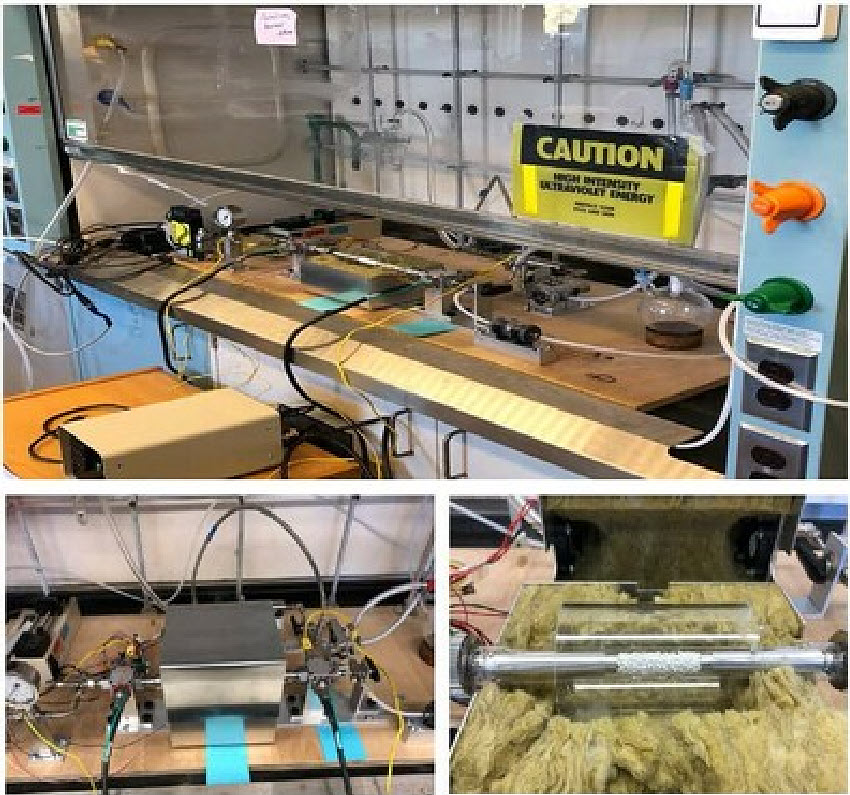
Hydrofuel Pioneers the Use of Light for Golden Hydrogen Production
July 24, 2023Groundbreaking H2 Technology Team from University of Toronto Joins the Company.
Green ammonia and H2 company Hydrofuel Canada Inc. has announced that it has signed a $1 million, two year licensing and cooperation agreement with the Solar Fuels Group at the University of Toronto, for their unique new golden hydrogen production process.
The new process uses light to convert H2 carriers into low cost H2 and other products.
The Solar Fuels Group is located in the University of Toronto’s Chemistry Department. It was both
created and spearheaded by Professor Geoffrey Ozin. The research team is well recognized for engineering light to catalytically transform molecules such as nitrogen, methane, carbon dioxide and water into a spectrum of value-added fuels and commodity chemicals. It is partnering with Mississauga, Canada-based Hydrofuel Canada Inc., which focuses on providing its customers with low cost, last-mile green ammonia and H2 solutions.
The two-year agreement is for licensing and partnership regarding “Opto-Chemical Engineering of High Efficiency and Low-Cost Photocatalysts and Photoreactors for Photoreforming Hydrogen Carriers”.
Despite the clean production and use of green H2, there are a number of technological, economical and safety hurdles that must still be overcome regarding its safe transportation and storage in gaseous or liquid form. The new golden hydrogen process sidesteps those challenges by using abundant small molecule H2 carriers such as ammonia, methane and water as the hydrogen source.
Golden hydrogen skips the primary challenges associated with green H2 production and storage.
Today’s most common methods of H2 production are by far based on the use of fossil fuels. That said, a small but growing number of projects are focusing on green hydrogen, using processes powered by renewable energy such as solar and wind. The reason is that energy in some form is required to power the conversion process.
This new partnership between Hydrofuel and the University of Toronto’s Solar Fuels Group is taking a new perspective on the production of H2 from various carriers. Instead of fossil fuel-based sources of heat or electricity, the Solar Fuels Group team has developed a method using light as the exclusive energy source. This method has been nicknamed “golden hydrogen” and results in a very clean fuel.
The main goal of this new partnership is the optical and chemical development of photocatalysts and photoreactors with maximum efficiency and minimal cost, while also being scalable and durable for H2 carrier photo-reforming and golden hydrogen production.

Photoreforming annular flow photoreactor with photocatalytic foam and light emitting diode array light source (CNW Group/Hydrofuel Canada Inc.)
Existing golden hydrogen research through the Solar Fuels Group proved vital to this partnership.
The University of Toronto’s Solar Fuels Group scientists were already researching and developing opto-chemically engineered photocatalysts and photoreactors. This research is central to the partnership’s objectives. This expertise was critical to the decision to partner so the scientists could support Hydrofuel in their strategy for golden hydrogen production from abundant H2 carriers.
Patent Portfolio
Six initial Opto-Chemical Engineering-based technology patent applications have already been filed. They include the following:
- Photochemical reforming of hydrogen vectors
- Single atom photochemical reforming of hydrogen vectors
- Photochemical reverse Boudouard process
- Photochemical reforming of ethane to ethene and hydrogen
- Photoreforming of hydrogen carrier polymers
- Single atom photochemical reforming of polymers
The two-year partnership supports golden hydrogen research
The partnership includes a $1 million Hydrofuel funding commitment that makes it possible for the Solar Fuels Group to retain 6 post-doctoral and doctoral candidates, allowing those scientists to continue their research focused on the identification of photocatalysts and photoreactors for H2 carrier photo reforming into golden hydrogen. The funding will also make it possible for the team to scale up their science to a practical technology with an aim at commercialization.
FAQ’s About This Article and Golden Hydrogen
Q1: What is the new agreement between Hydrofuel Canada Inc. and the Solar Fuels Group at the University of Toronto?
A1: Hydrofuel Canada Inc. has signed a $1 million, two-year licensing and cooperation agreement with the Solar Fuels Group at the University of Toronto. This agreement focuses on their unique new golden hydrogen production process, which uses light to convert H2 carriers into low-cost H2 and other products.
Q2: Who are the Solar Fuels Group and what do they do?
A2: The Solar Fuels Group is based in the University of Toronto’s Chemistry Department, created and led by Professor Geoffrey Ozin. They are recognized for engineering light to catalytically transform molecules like nitrogen, methane, carbon dioxide, and water into various value-added fuels and commodity chemicals.
Q3: What does this partnership aim to achieve?
A3: The main goal of this partnership is the optical and chemical development of photocatalysts and photoreactors with maximum efficiency and minimal cost. This will be scalable and durable for H2 carrier photo-reforming and golden hydrogen production.
Q4: How does the golden hydrogen process work?
A4: The golden hydrogen process uses light as the exclusive energy source to convert abundant small molecule H2 carriers like ammonia, methane, and water into hydrogen. This method results in a very clean fuel and sidesteps challenges associated with green H2 production and storage.
Q5: What is the significance of the partnership’s funding commitment?
A5: The $1 million funding commitment from Hydrofuel allows the Solar Fuels Group to retain 6 post-doctoral and doctoral candidates. This enables them to continue their research focused on identifying photocatalysts and photoreactors for H2 carrier photo reforming into golden hydrogen. It also helps to scale up their science to a practical technology with an aim at commercialization.




 With over 15 years of reporting hydrogen news, we are your premier source for the latest updates and insights in hydrogen and renewable energy.
With over 15 years of reporting hydrogen news, we are your premier source for the latest updates and insights in hydrogen and renewable energy.